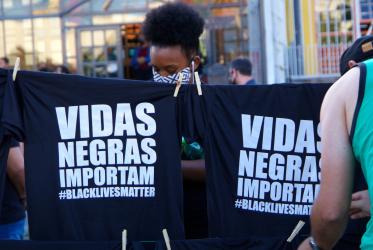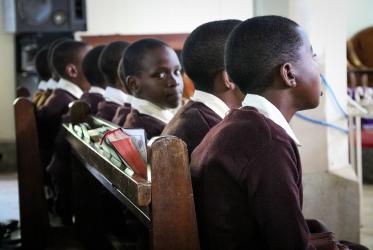Displaying 1 - 20 of 23
ACT Alliance general secretary: “equity is not negotiable”
26 September 2023
Répondre aux besoins humanitaires en Ukraine
27 September 2022
Ukraine: Responding to humanitarian need
08 September 2022
Webinar explores intersection of debt cancellation and anti-racism
09 December 2021














